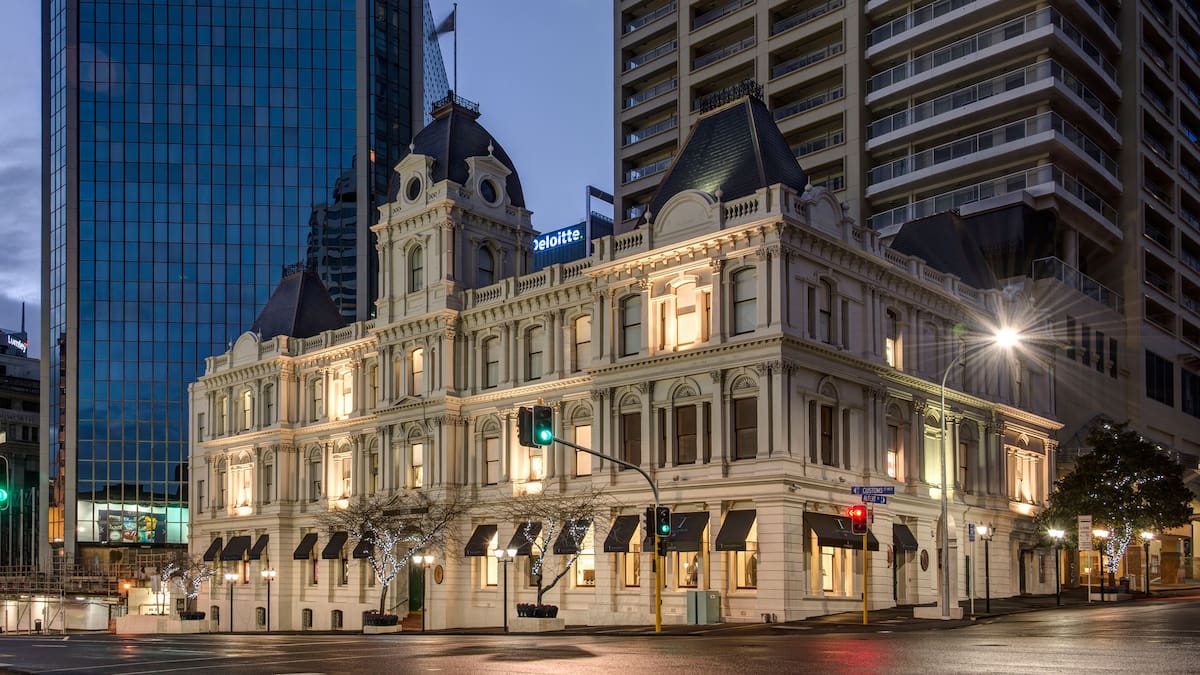Unlike E tū, he said, “who I presume donates/supports the Labour Party, and you, a former Labour Party Minister, I have had very little involvement with politics”.
“For instance, I have never made any significant political donations in my former country of Canada and none at all in New Zealand. (I registered as a promoter during the 2023 election, out of an abundance of caution, but never actually supported any party.) Is it possible you are looking at this through an overly politicised lens?
“It may surprise you that my passion is not politics, rather a goal that truthful, thoughtful, and unbiased journalism will be available for all New Zealanders.”
Grenon, who owns 9.97% of NZME, is seeking to become chairman of the company at its annual shareholders’ meeting on April 29 and for shareholders to vote for his three other board nominees – lawyer Philip Crump, private equity businessman Des Gittings, and retail industry executive Simon West. His proposal is to retain one of the existing board members as a fifth director.
NZME owns the NZ Herald, Newstalk ZB, BusinessDesk and OneRoof, as well as a suite of entertainment radio stations and regional news brands.
The union has requested a meeting with Grenon, seeking reassurances around editorial independence.
Editorial independence questions
In a letter on Saturday, Grenon told Wood he was happy to meet but wanted to first understand what editorial independence meant to the union.
“Like so many idealistic catchphrases, it has wide recognition and a proud legacy, but it is also subject to all sorts of nuances and real-world pressures,” wrote Grenon.
“If you would kindly answer the questions … it would give me a greater understanding of your perspective and lead to a more productive meeting.”
He asked Wood six questions, quoted in full below:
- What does “editorial independence” mean to you in the context of NZME, other than the general definition of: free expression of ideas and the unbiased, truthful dissemination of information?
- Are you happy with the current editorial quality of the Herald? Please explain why you hold that view.
- In the context of editorial independence, how does the E tū Union feel about the new editorial direction that was disclosed by NZME concurrent with its 2024 financial results? I have reproduced the relevant language here: “NZME will also focus on taking a leadership position to help New Zealand thrive. NZME will use its various platforms, including the New Zealand Herald, to support the reboot and acceleration of New Zealand’s economic recovery, sharing stories of success and building positive momentum.”
- Who do you believe ultimately sets the editorial direction and the level of control that the journalists will work under? And if it is a person or a committee, are they accountable to anybody? Put another way, isn’t the reputation of the Herald and its financial performance affected by its journalism so that, ultimately, the board has a duty to ensure the editorial process meets their idea of performance?
- How much autonomy do you believe journalists should have? Can they write anything they want? Where is the line, and who gets to say if they have crossed it? Who decided during the government blitz to promote 3Waters, for example, and to suppress analysis to the extent that the Taxpayers Union used it as an opportunity to increase their subscriber base, quite possibly at the expense of the Herald, by touring the country explaining 3Waters.
- Do you believe that editorial independence can be impacted by government grants with conditions, advertising, public relations, and interest groups trying to promote their view of the world, including potentially the E tū Union? A classic example of this is the Public Interest Journalism Fund, created under the Labour government when you were a minister, and which required support for a certain interpretation of the Treaty.
NZME and E tū have been approached for comment about the specific questions and assertions.
Grenon said in the letter that the Herald was a “business in decline”.
“As a shareholder of NZME, living in NZ, I want to ensure that this business survives and thrives. I think that is good for democracy and the country.”
E tū’s earlier statement

In an earlier statement, Wood said Grenon – who has previously been behind smaller, alternative media entities NZ News Essentials and Centrist – had a clear agenda to use NZME “for his own interests”.
“Mr Grenon clearly wants to use his financial clout to steer the editorial direction of one of New Zealand’s largest and most important media networks,” Wood said.
“While changes to media ownership in New Zealand are common, there is not any recent example of an extremely wealthy individual seeking to use an ownership stake to steer public discourse in the way that Mr Grenon, based on his track record, seems to be attempting.”
He said the idea a group backed by extreme wealth was “planning to take over such an important institution in our democratic fabric should be of concern to all New Zealanders”.
NZME chair’s position
NZME chair Barbara Chapman told Media Insider last week that editorial independence was “critical for New Zealand. It’s critical for NZME”.
“This organisation has a broad range of readers and listeners. ZB works with a right bias, but the Herald is seen as the most politically neutral [news outlet] in the country.
“It’s got a two million-plus audience. For us, keeping that editorial independence so that we’re talking to all sides of the political spectrum is in the best interests of NZME.”

Across publishing, audio, and OneRoof, she said, NZME reached nine out of 10 New Zealanders.
Chapman said any change in the Herald’s editorial positioning – “if that were to occur” – would place advertising revenue at risk.
“Advertisers are interested in reach and if we lose reach because we’re narrowing our audience, then we will lose advertising revenue.
“Editorial independence is critical for NZME because having a broad base of people reading our newspapers and listening to our news bulletins is what drives revenue. If we were to narrow that, then revenue would be lost and that’s not in the best interests of the company or shareholders.”
Grenon: More quality, not less
In his letter to Wood on Saturday, Grenon reiterated a point made in his 11-page letter to the NZME board, which outlined a number of operational, governance and financial and performance issues as he saw them.
“My intention is that more quality content should be produced, not less. This is needed to attract new subscribers. Public trust in the NZ Herald has declined by over 25% since 2020, according to a recent report by the Auckland University of Technology Research Centre for Journalism, Media and Democracy.
“Furthermore, this report also illustrates a trend forming where individuals are not financially supporting the NZ Herald as much as they previously were and are increasingly more willing to support other news sites.”
Grenon said he had reviewed NZME’s editorial code of conduct and ethics policy and agreed with the principles outlined: accuracy, independence, opinion, editing, diversity and conduct/integrity.
But policies, he said, also needed structure and proper oversight.
“Additionally, the person or group providing the oversight needs to do so to the satisfaction of the board. I believe that if standards are not being met, then action must be taken. The solution is not in lofty phrases that often mean different things to different people.
“The solution is in adding processes, training, and resources for the journalists at NZME so they are better equipped to produce a quality product that aligns with the editorial policies. Likely this will entail an editorial board but that is for the board of directors to decide.”
Editor-at-Large Shayne Currie is one of New Zealand’s most experienced senior journalists and media leaders. He has held executive and senior editorial roles at NZME including Managing Editor, NZ Herald Editor and Herald on Sunday Editor and has a small shareholding in NZME.





